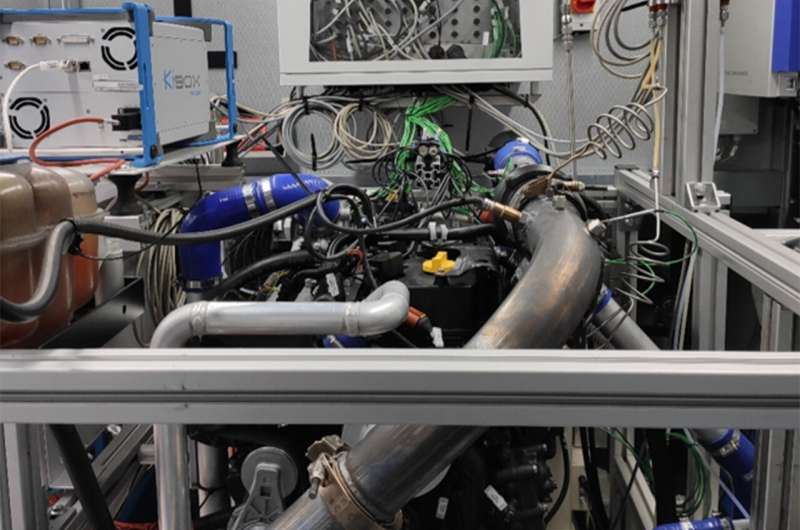This article has been reviewed according to Science X's editorial process and policies. Editors have highlighted the following attributes while ensuring the content's credibility:
fact-checked
peer-reviewed publication
proofread
New injector makes gas injection system for internal combustion engines more efficient

Zero-emission hydrogen engines, like all internal combustion engines, require a mixture formation system, i.e. a system for metering the fuel, in this case hydrogen gas. The most promising approach is a low-pressure direct injection system (LP-DI), meaning an injection directly into the combustion chamber.
If injection is only allowed to start after the intake valves have closed, the undesirable air displacement effect can be avoided. As a result, torque can be increased by approximately 20% at the same boost pressure compared with simple duct injection, and backfiring into the intake duct is reliably ruled out. By designing the system for low injection pressures of around 20 bar, the pressure tank can be run almost completely empty without any loss of performance.
However, the low density of the hydrogen requires comparatively large opening cross sections to blow the gas into the combustion chamber in the available time window. In addition, the dry gas has no lubricating properties whatsoever. At present, there are no mass-produced LP-DI injectors that can meet the specifications in the long term.
The Heilbronn scientists led by Prof. Karsten Wittek have developed a novel LP-DI system for gaseous fuels. It is based on an inward-opening nozzle with a seat seal. The sealing element is actuated servo-pneumatically and uses the pressure energy of the inflowing fuel gas. The design of the seat geometry in combination with highly wear-resistant ceramic materials also guarantee compliance with the demanding service life requirements of industrial applications.
The system is particularly suited for large engines such as those of heavy commercial vehicles, construction machinery, locomotives and GenSets.
The concept was realized as a prototype and extensive series of tests were completed on the injection nozzle test bench and on the engine test bench. All relevant functional properties could be confirmed experimentally.
The study is published in the International Journal of Hydrogen Energy.
More information: Karsten Wittek et al, Development of a pneumatic actuated low-pressure direct injection gas injector for hydrogen-fueled internal combustion engines, International Journal of Hydrogen Energy (2022). DOI: 10.1016/j.ijhydene.2022.12.023

















